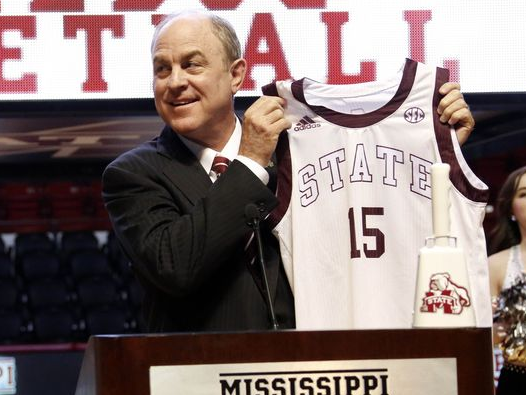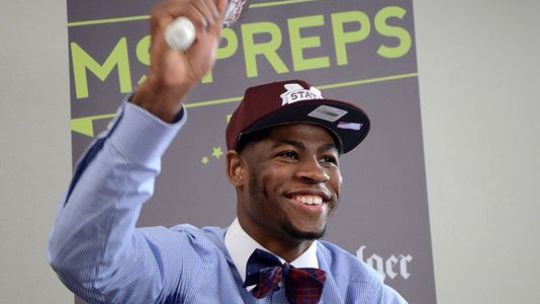SEC Burning Questions: First Year Coach With the Biggest Impact
Posted by Greg Mitchell on November 2nd, 2015One of the biggest developments in the SEC this offseason was the star power added to the league’s coaching ranks, as no fewer than three programs added a head coach with an impressive pedigree. Mississippi State hired Ben Howland, a man who led UCLA to three straight Final Fours from 2006-08 and has won conference titles in the Big Sky, Big East and Pac 10/12. Tennessee quickly ended its tumultuous relationship with Donnie Tyndall and added a coach with a Final Four to his name as well (plus three Sweet Sixteens and two Elite Eights) in Rick Barnes. And after swinging and missing on Wichita State’s Gregg Marshall, Alabama was nonetheless able to win the press conference by hiring Avery Johnson, a former NBA Coach of the Year who led the Dallas Mavericks to the NBA Finals in 2006. Florida didn’t make a splashy hire, but the Gators replaced its legendary coach with Louisiana Tech’s Michael White — no stranger to the SEC after playing and coaching at Ole Miss.
Of the four, Howland and White are poised to have the biggest impacts this season. For Howland, this is in no small part because of the situation former Bulldogs’ head coach Rick Ray left him. It would have been more than understandable had Mississippi State stuck with Ray for at least another year. His three-year results weren’t great, but there had been incremental improvement: The Bulldogs won six SEC games under him last year (his highest total) and were poised to return a strong and experienced core that he had recruited and developed. But as cruel as it was for Ray to lose on the chance to continue building his program, it’s refreshing that Mississippi State strived for more — the type of ambition the league needs if it wants to raise its national profile. Howland arrived in Starkville and delivered right away, signing Jackson native Malik Newman (Rivals’ #8 overall prospect) away from the likes of Kentucky, Ole Miss and LSU.
The Newman coup aside, Ray deserves some credit if Howland succeeds this year. One thing the Bulldogs did fairly well last year was defend (#103 in Kenpom), and they return an important piece to that puzzle in Gavin Ware. The senior is a monster on the defensive glass and is a part of a seasoned core of players that includes fellow seniors Craig Sword and Fred Thomas, and junior I.J. Ready. This group should continue to improve defensively under Howland, a coach who has come to be known as a defensive wizard over the years. Ten of his teams have finished among the top 65 of Kenpom’s adjusted defensive efficiency rankings, and UCLA’s run of Final Four were predicated on especially elite defensive units. On the other end, the offense should be at least respectable with Newman and Sword (11.8 career PPG – second team all-SEC) leading the way. This combination of experience, a coach who excels at teaching defense and two theoretically reliable playmakers could push the Bulldogs into the upper third of the conference. It might even be enough to garner some NCAA Tournament discussion.
White should have the Gators in the running for an NCAA berth as well. Despite last year’s disappointing season, Florida was still an elite defensive team (11th) that returns most of its major contributors, with the exceptions of Michael Frazier, Jon Horford and Chris Walker. White’s Louisiana Tech teams finished among the top 78 of Kenpom’s offensive efficiency ratings the last two years, and a similar rise to that level should put the Gators at or near the top of the league — a notion not that farfetched with Dorian Finney-Smith and Devin Robinson making up one of the most versatile frontcourts around. The key will be whether White can find consistency at the point guard position from either Chris Chiozza or Kasey Hill. Hill has the athleticism and speed to become a great playmaker, but he really needs to improve his shooting (42.1% true shooting last year) if he’s going to be a consistent threat. Another issue for White is that no one besides Finney-Smith and Hill were around for Florida’s great run of success prior to last season, but the talented team could easily find itself back in the NCAA Tournament mix with the right development.
The NCAA Tournament seems like a much more remote possibility for Barnes and Johnson at their respective new schools. Both lost very good players — as Josh Richardson (16.0 PPG, first team all-SEC, SEC all-defensive team) exhausted his eligibility in Knoxville; and Levi Randolph (15.4 PPG, second team all-SEC) and Rodney Cooper (11.1 PPG) did the same in Tuscaloosa. That said, Johnson figures to give Tide fans a new look this year. Anthony Grant’s offenses typically operated at a snail’s pace, but early indications are that Johnson will speed things up. That could be an intriguing development since Alabama’s strength will be its athletic bigs who can run the floor — players such as Shannon Hale, Jimmie Taylor and Michael Kessens. For both Barnes and Johnson, this season figures to be more about establishing their systems now and pulling in recruits for the future. Both are in a decent position to lay a strong foundation, though, as Barnes brings in a five-man recruiting class and Johnson only has one senior on his roster.













































[…] mississippi state, rick barnes, tennessee. You can follow any responses to this entry through the RSS 2.0 feed. You can leave a response, or trackback from your own […]